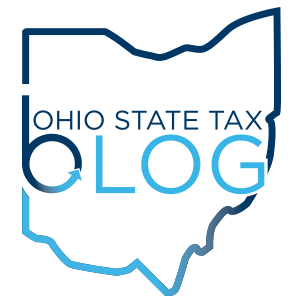Multistate Sales/Use Tax – Benefits of Voluntary Disclosure for Construction Contractors
Construction contractors that discover a delinquent sales/use tax liability from failing to collect tax on taxable sales can typically minimize their liability by participating in a state voluntary disclosure program (or amnesty program). In Ohio, and in the majority of states, construction contractors are deemed to be consumers of their materials incorporated into the constructed improvements that become real property. As a result, the contractor pays sales/use tax on its building material purchases, as well as equipment and supplies, but does not collect sales tax from the customer/property owner. However, a construction contractor may be required to collect sales tax on sales related to personal property, even if the contractor paid tax on the purchased materials.
In Ohio, for example, the sale, repair or installation of business fixtures, which retain their character as personal property even after permanently attached to real property, are taxable. Likewise, certain states treat real property services as taxable – for instance, real property repair and maintenance services are subject to sales/use tax in New York and New Jersey, while real property repair, remodeling and restoration services (but not regularly scheduled maintenance) are subject to Texas tax. Washington taxes all construction, repairs and improvements to real property. In addition, for a time and materials contract, certain states treat the contractor as the retailer of building materials that are separately itemized in the contract or invoice, meaning the contractor is required to collect the applicable sales tax on the price charged for the materials.
When a contractor fails to collect required tax on taxable sales, but rather pays sales/use tax on its building material purchases, the contractor’s liability resulting from an audit may be greatly inflated. The contractor’s net liability – sales tax that should have been collected from the customer less sales tax erroneously paid on purchased materials – may seem relatively small. However, if the contractor has not filed sales tax returns, there is no statute of limitations on an assessment, which means a state may assess uncollected sales tax for prior periods now closed for a refund. This results in the contractor being whipsawed by being assessed for uncollected sales tax without receiving a credit/offset for the sales/use tax it erroneously paid on building materials used in providing the taxable service, thereby greatly increasing its liability (including interest and penalties). Although this seems like a harsh result, several states only allow an offset/credit for tax erroneously paid on building materials through the filing of a separate and timely refund claim (e.g., New Jersey and Washington, in our experience).
In these situations, it is very beneficial for the contractor to pursue a voluntary disclosure agreement to resolve its delinquent liability. Due to the limited look-back period associated with a voluntary disclosure (typically 3 to 4 years), the contractor will be ensured a credit for tax erroneously paid on its materials through a properly filed refund claim. So, this added benefit from a voluntary disclosure – ensuring credit for tax erroneously paid on purchases during the same period during which an assessment on sales can be made –eliminates the liability for the pre-disclosure period, while minimizing the liability for the look-back period subject to the disclosure. It also enables the contractor to quietly commence prospective tax compliance.
Information on Ohio’s sales tax voluntary disclosure program can be found here. However, if a delinquency is discovered for multiple states, the contractor may wish to consider participating in the MTC’s Multi-State Voluntary Disclosure Program. Further, by working with a professional, the contractor requesting a voluntary disclosure agreement may keep its anonymity through the initial steps of the voluntary disclosure process. If you need help determining whether a voluntary disclosure is appropriate for you or need a professional to initiate a voluntary disclosure request on your behalf, please do not hesitate to contact us.
